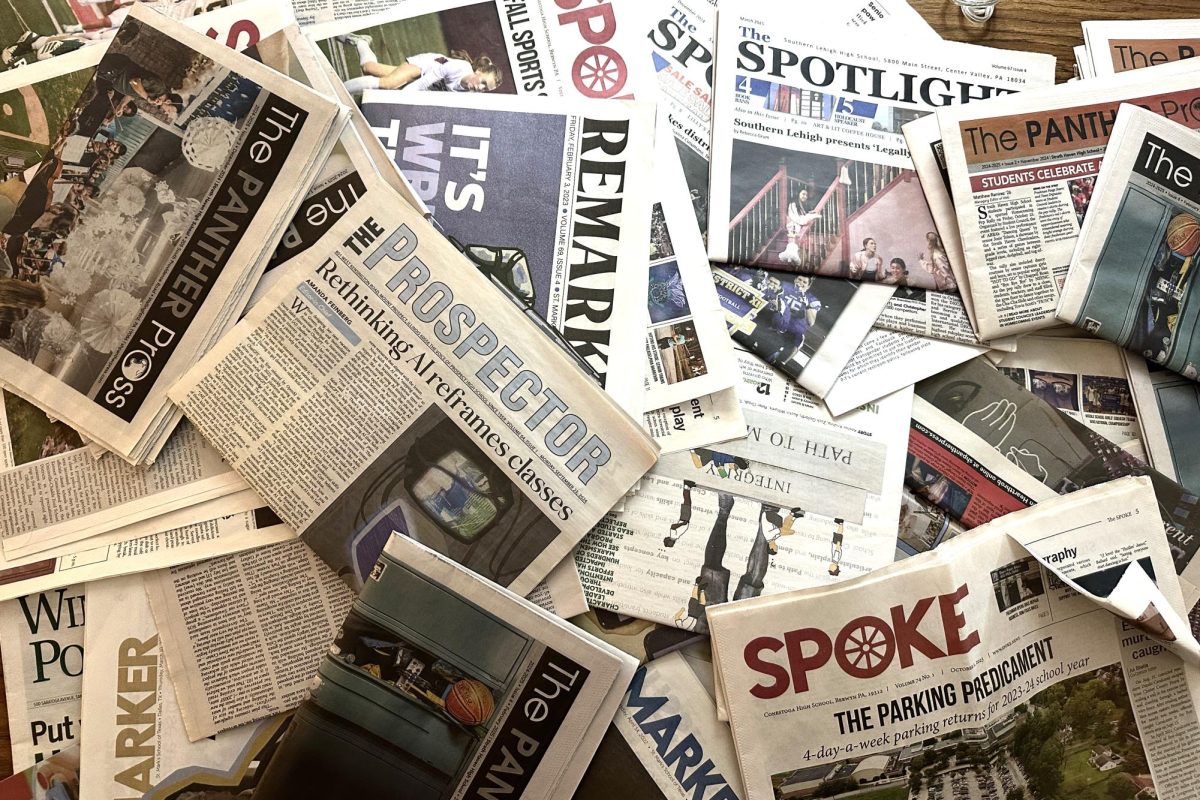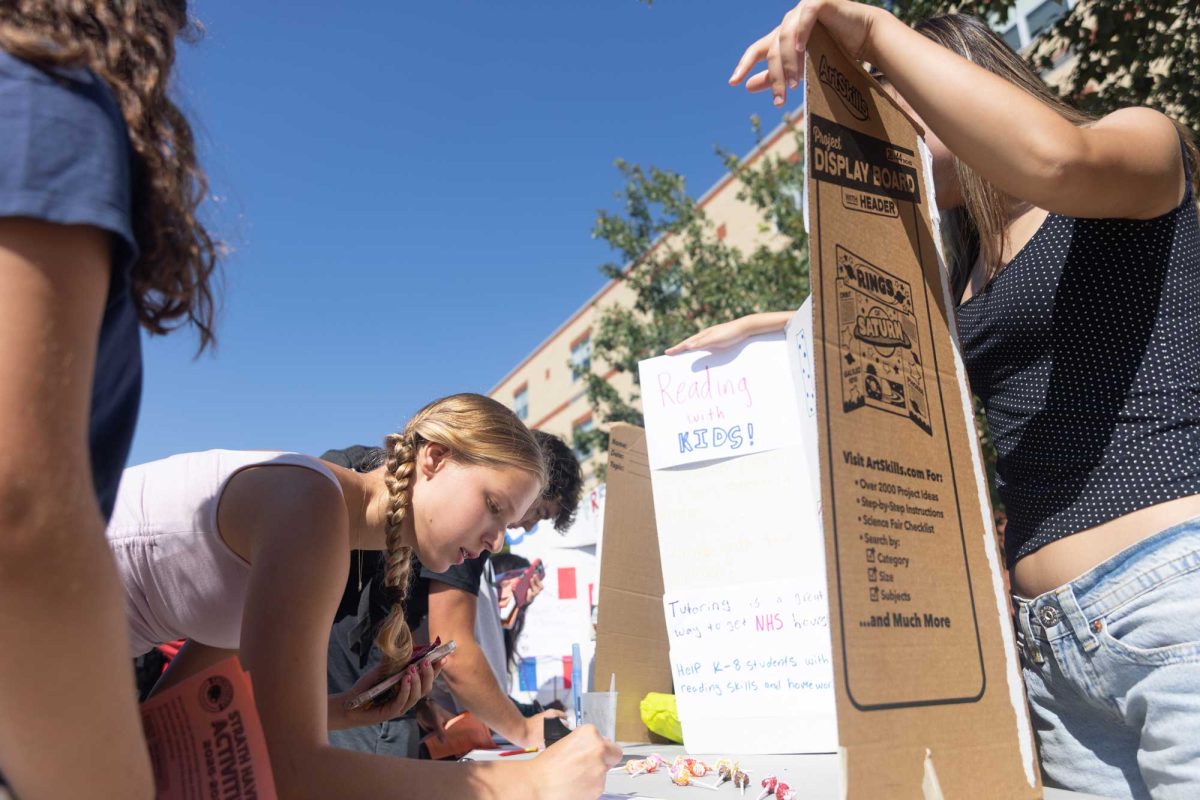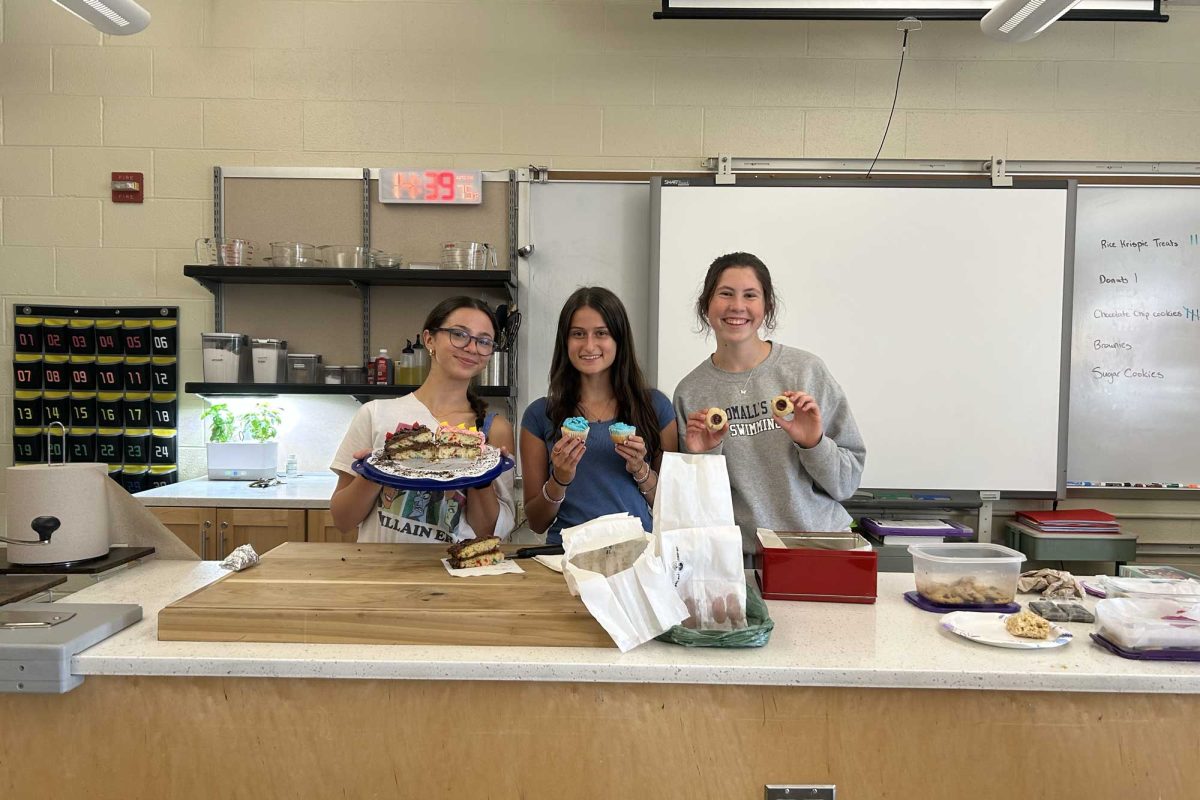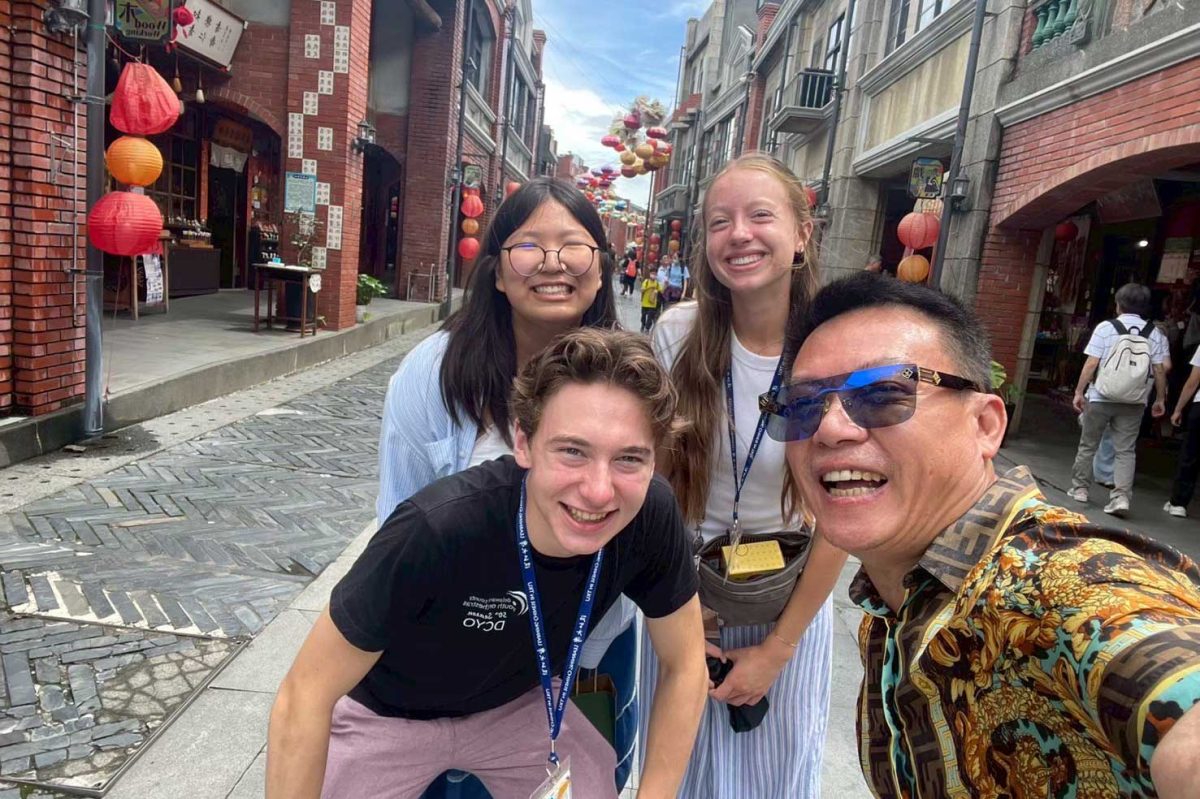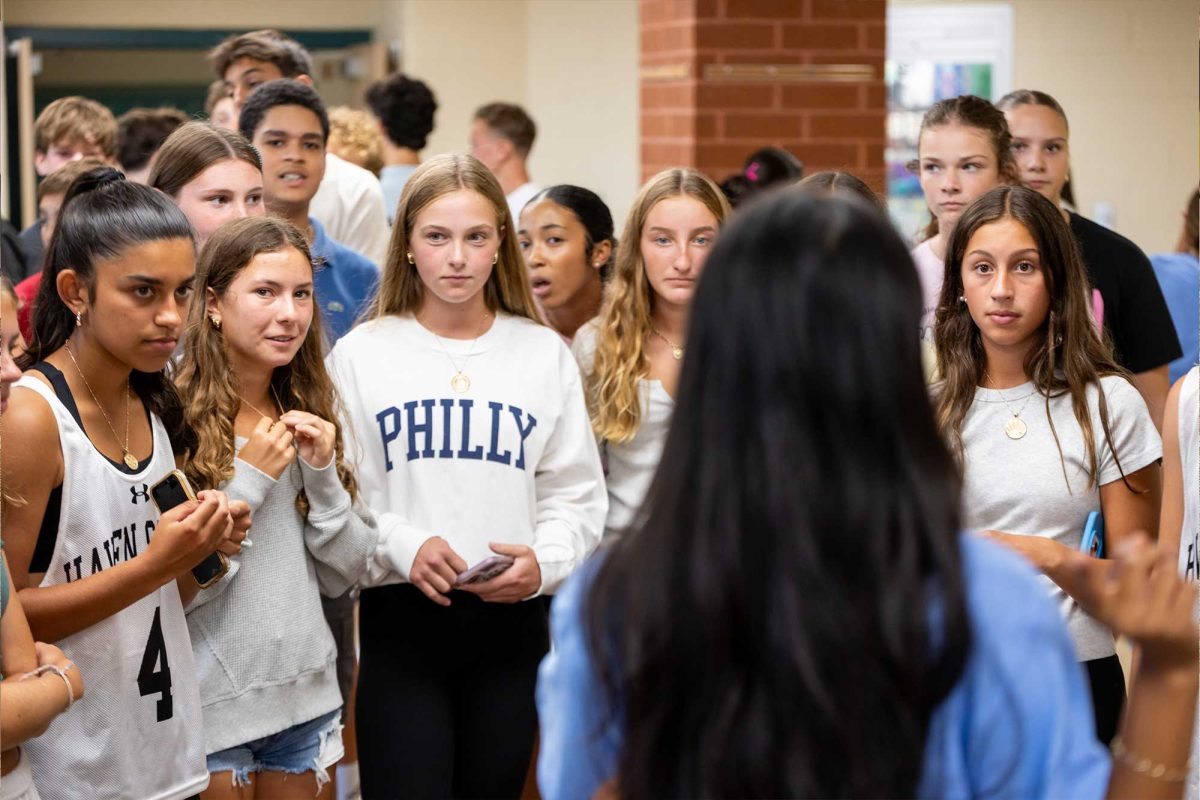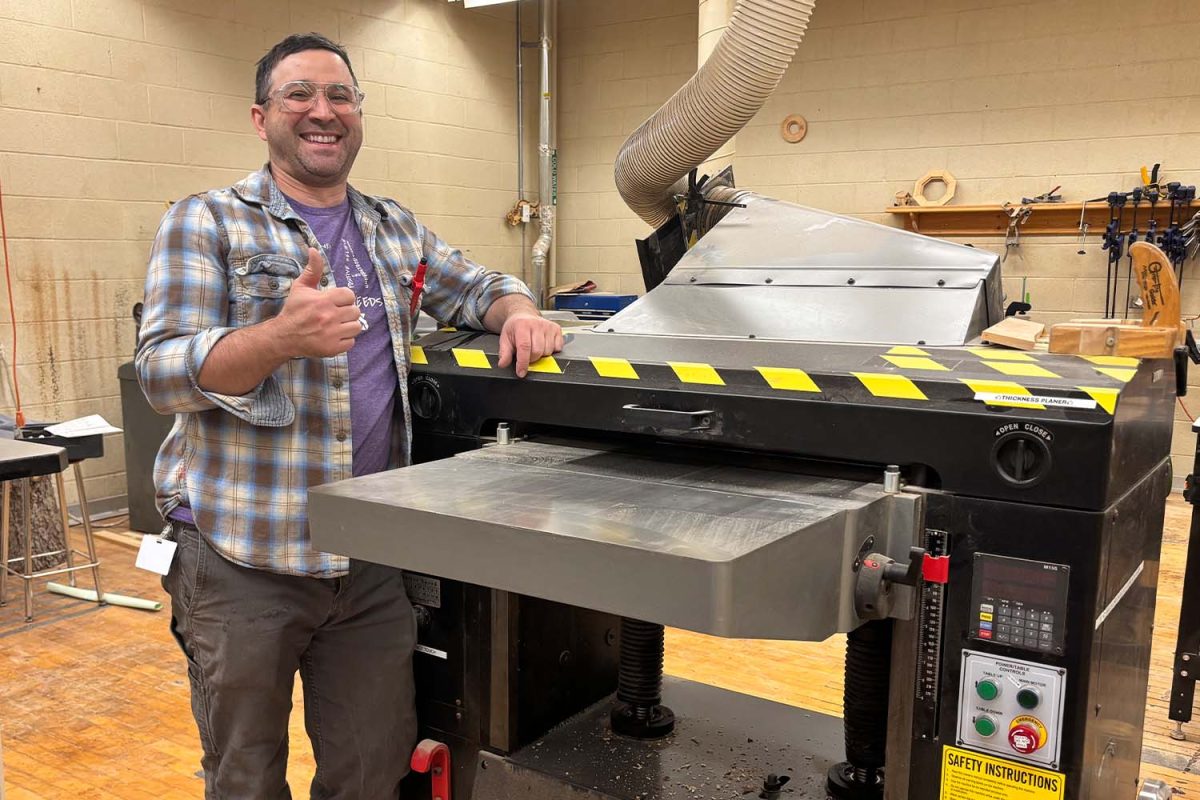“A lie can travel halfway across the world while the truth is putting on its boots.”
This common saying is true now more than ever, according to Interim Executive Director of the National Association for Media Literacy Education (NAMLE) Donnell Prost.
News is everywhere. It’s on social media, passed around by word of mouth, on your television screen—and misinformation is flourishing because of it.
Junior Minori Saito has felt exhausted from constantly fact-checking negative news. For example, America is a world leader in school shootings, something so common that Haven practices monthly lockdown drills in preparation.
“[Lockdown drills] are a vague testament to the fact that terrible things are happening in this country all the time, and we’re exposed to them, so naturally, we’re a lot less sensitive to violent things like shootings,” Saito said.
For people who feel detached from national news, Prost says they are not alone. This detachment and apathy can be a major reason why people avoid getting involved in politics, according to an article by Pew Research Center.
“If you think about how diverse our communities are, and the fact that 99% of the stories are not going to get out on national news, because it can only do so much, those are all of the stories and voices and experiences that we’re not hearing, right?” Prost said. “And that is what’s so important about media. If you don’t have any direct experience with someone, someplace, something, how do you know about it?”
To combat news fatigue and misinformation, consuming media responsibly is essential.
“We’re not asking people to arrive at a conclusion about information or about content or about what they want to think or feel or say about something,” Prost said. “It’s more about just having that critical eye and being able to reflect on your own media use.”
Saito shields herself from desensitization by staying in touch with her values and beliefs. She tries to avoid news on social media and focuses on news articles instead.
“Taking moments to sit with myself and really process everything that I see or everything that I’m feeling in the moment, just knowing myself and being in touch with my emotions sort of keeps my humanity,” Saito said.
To resist “rage-baiting” news, Prost emphasizes the importance of cross-referencing multiple sources to get the most accurate information. She believes that taking care of your mental wellbeing in digital spaces should be prioritized.
“Understanding if you are constantly being outraged or saddened by the media you’re consuming, it’s time to kind of take stock of that and say: Why? What am I consuming that’s giving me this feeling?” she said.
Senior Olivia Heisey-Terrell deals with news fatigue by working to make a difference. She is a junior council member for the Delaware County Council.
According to a survey of 333 high school students Heisey-Terrell helped to write through junior council, 85.1% of kids get their information from social media, and 20.2% follow the news every day.
Changing focus from national to local has been the key for students working to make a difference. Heisey-Terrell encourages more students to get involved in their community, whether through work at food pantries or applying for junior council membership.
“I turned off the news notifications on my phone,” Heisey-Terrell said. “I try to avoid it on social media when I can. But if you’re informed of something, and you know you can do something about it, you’ve got to do it.”
77.4% of students in Haven’s area want or maybe want to be more involved in government, according to the junior council’s survey.
So why aren’t more students getting involved? It has something to do with the disconnect between internal political efficacy, which is the belief that you are capable of policy participation, and external political efficacy, which is the belief that the government will respond to participation.
“It seems like people have a lot of internal efficacy skills,” Heisey-Terrell said. “They do have opinions, like we’ve seen on the survey, about the direction our country’s headed, some political issues, but they aren’t involved in the more external efficacy stuff.”
Prost feels that her job allows her to create positive change, which helps her combat news fatigue.
“I think that’s part of how we got in this situation that we’re currently in is a lot of apathy and a lot of poor media literacy skills,” Prost said. “But also, we do need to get the people in the door who are not in the door, because we can’t all do it by ourselves.”




